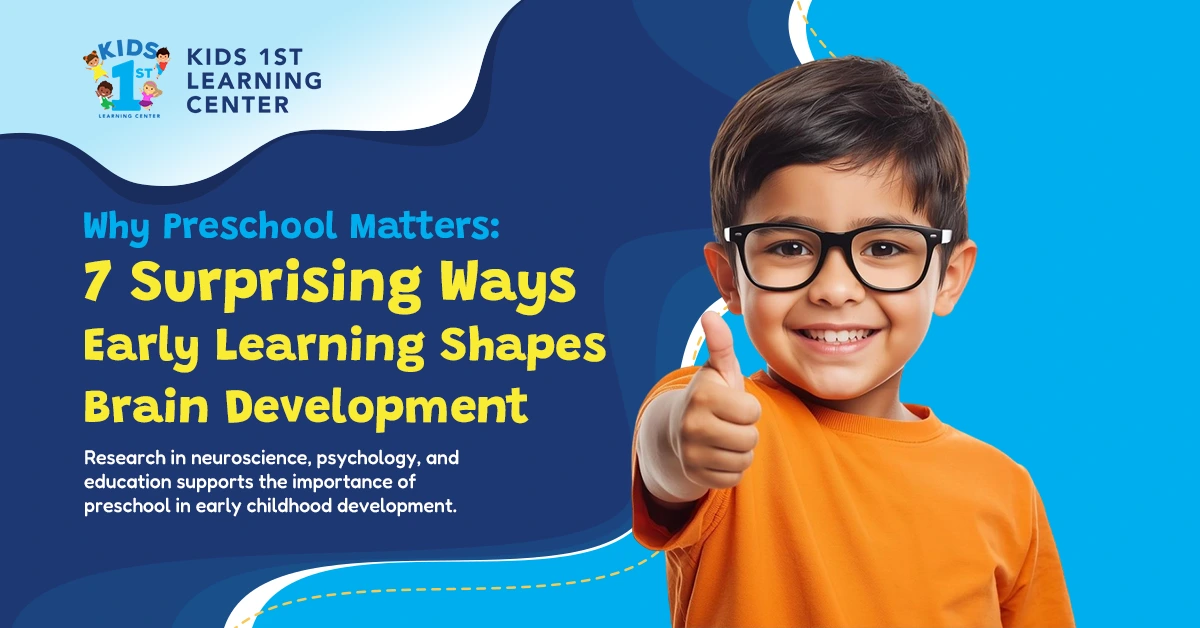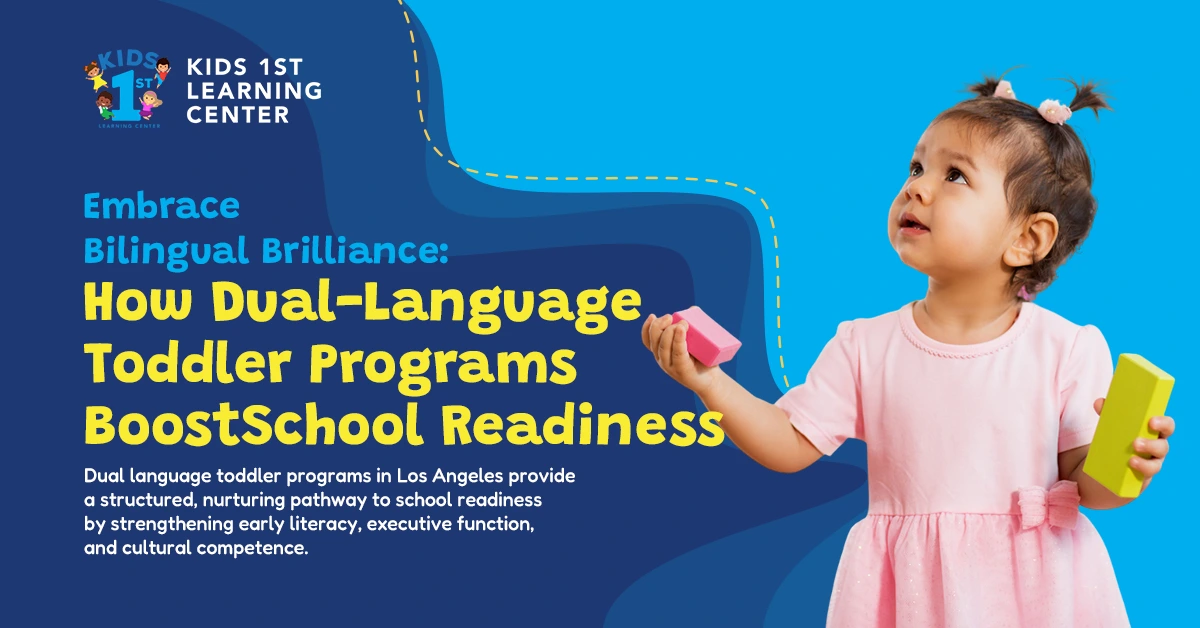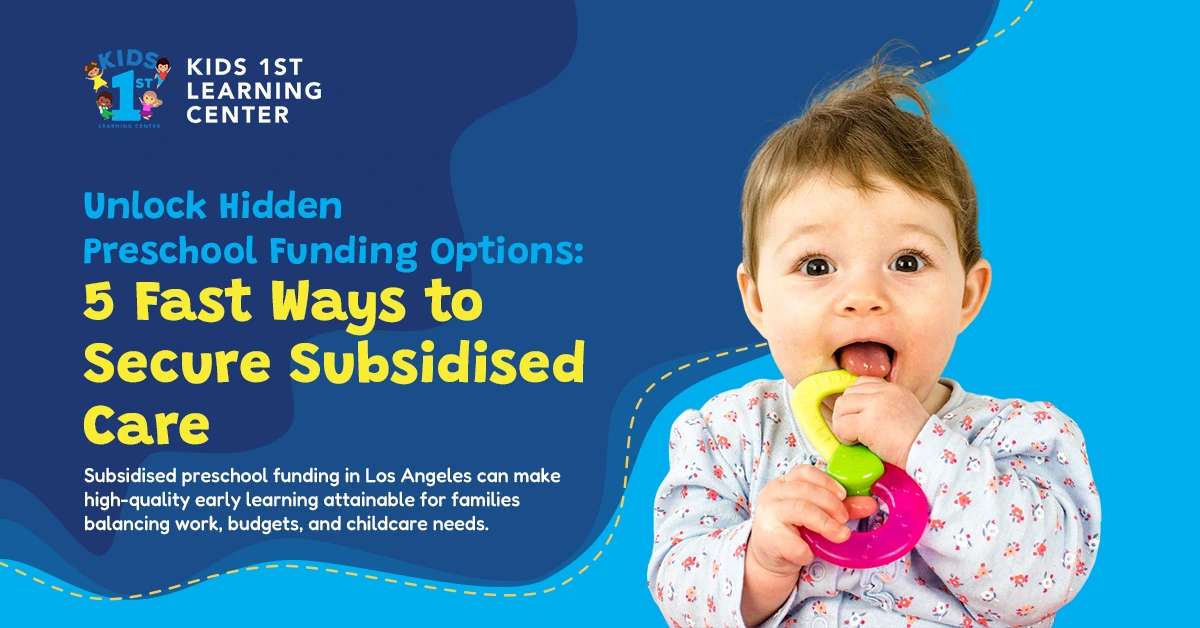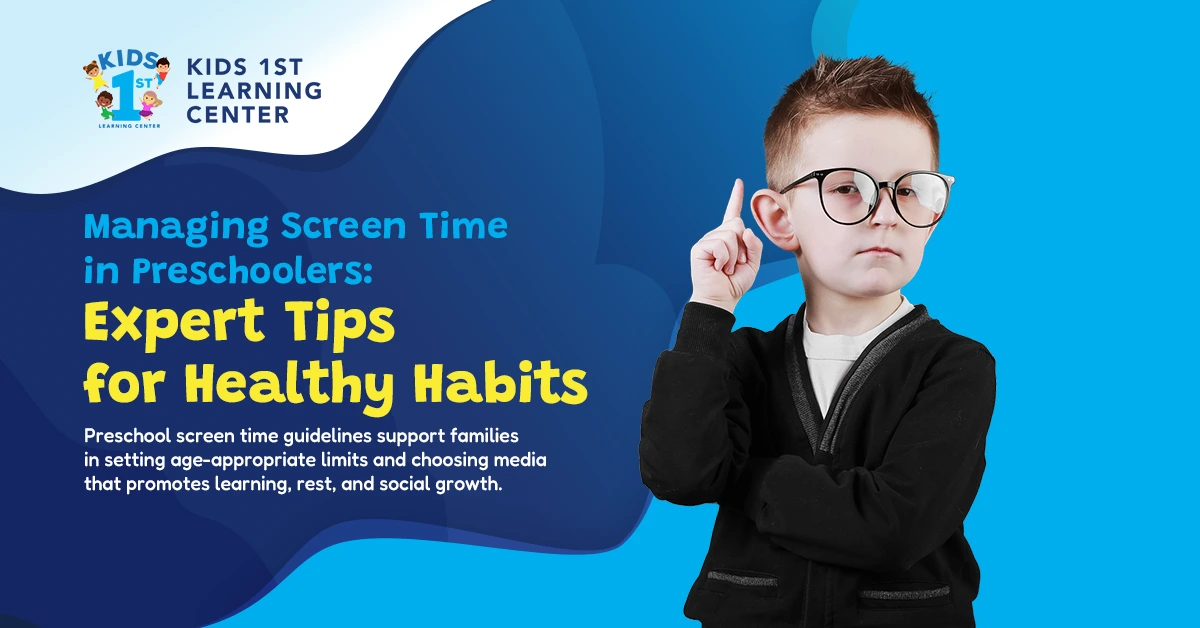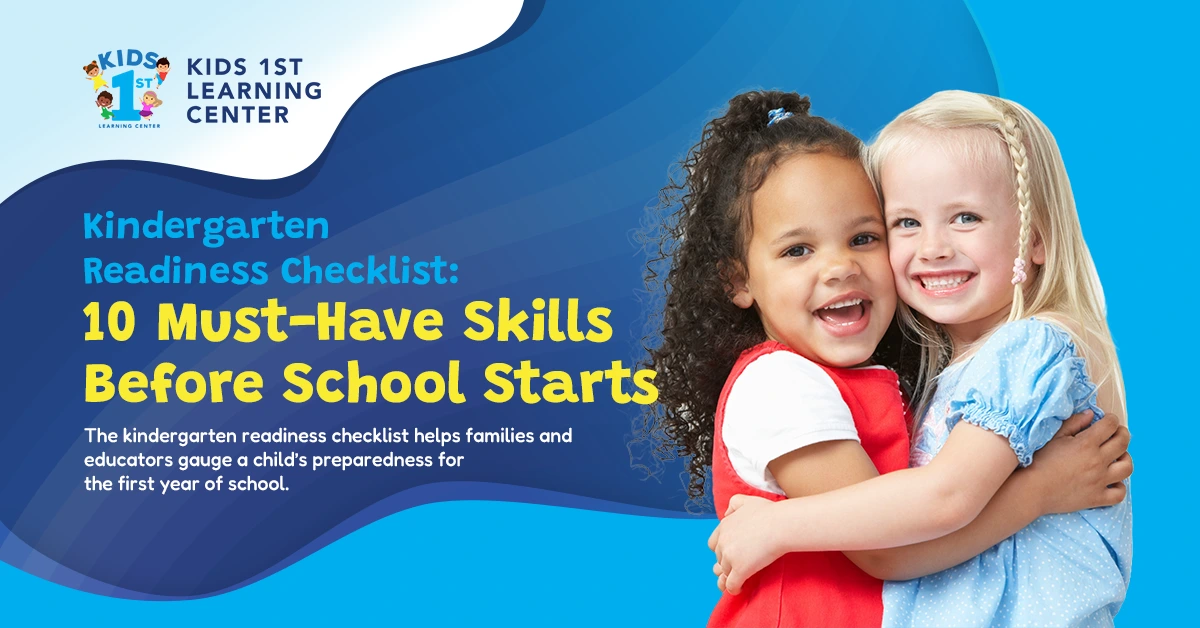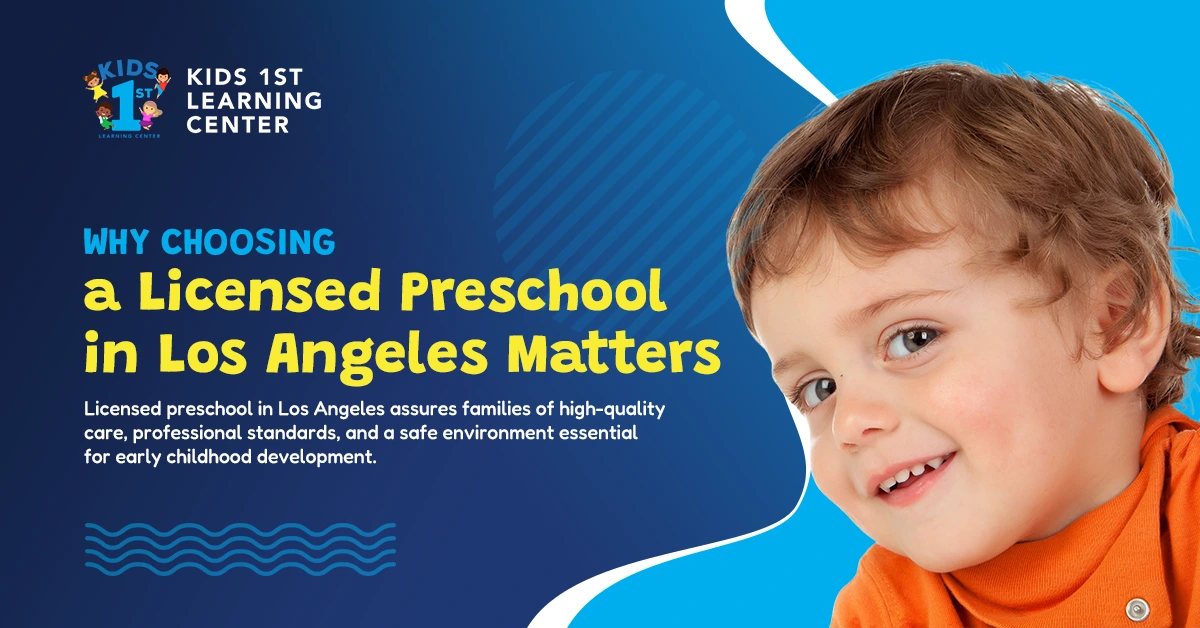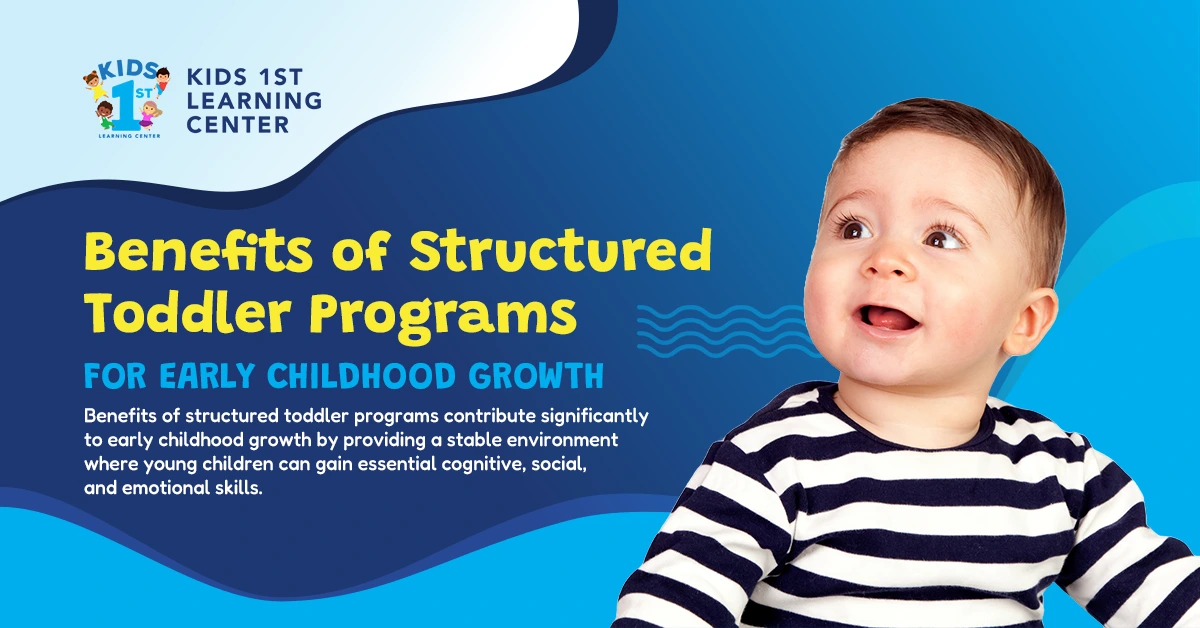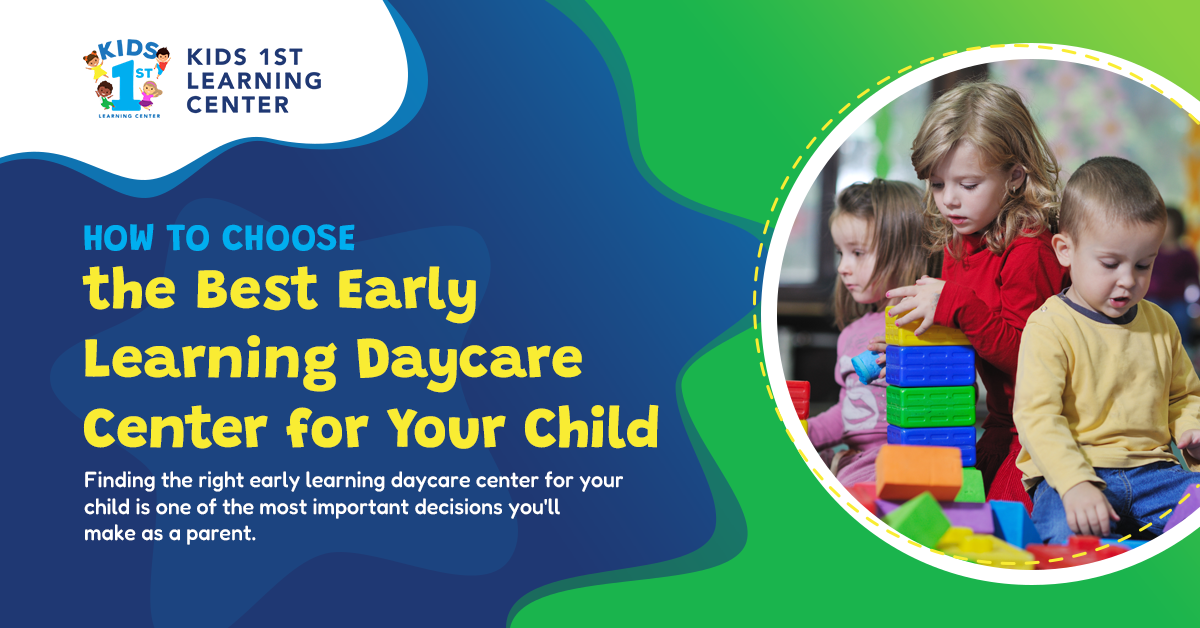
Finding the right early learning daycare centerfor your child is one of the most important decisions you’ll make as a parent. The early years are crucial for a child’s growth, and the right daycare should offer more than just supervision—it should provide a nurturing environmentwhere children can learn, explore, and thrive.
But with so many options available, how do you know which is best? From safety standards and curriculum to teacher qualifications and parent communication, there are key factors to consider when choosing. At Kids 1st, every child deserves a loving, stimulating space to develop essential skills while feeling safe and supported.
Look for a Childcare Learning Center with a Strong Educational Foundation
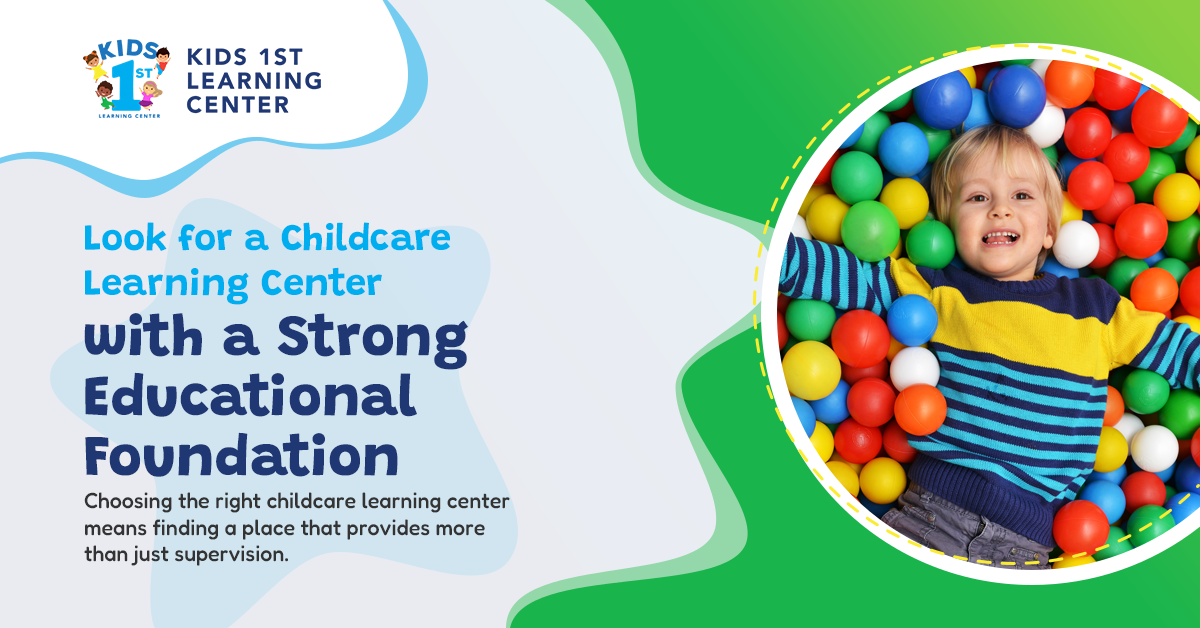
Choosing the right childcare learning centermeans finding a place that provides more than just supervision. The early years are a critical time for brain development, and a strong educational foundation can set your child up for future success. A high-quality daycareshould combine structured learning, experienced educators, and engaging activities to help children thrive. Here’swhat to look for in an exceptional early learning environment.
Structured Curriculum That Encourages Growth
A daycare should have a well-planned curriculum that nurtures early cognitive, language, and motor skills. The best programs balance structured learning with play-based exploration to encourage creativity and problem-solving.
Key elements of a strong curriculum:
- Early literacy and language development: Storytime, letter recognition, and vocabulary-building activities.
- Hands-on math skills: Simple counting, sorting, and pattern recognition using interactive games.
- STEM exposure: Introduction to science and technology through nature walks, building blocks, and fun experiments.
- Social-emotional learning: Activities that promote kindness, sharing, and self-expression.
A curriculum incorporating these aspects helps children develop essential skills while keeping learning fun and engaging.
Qualified Educators Who Understand Early Childhood Development
A daycare’s teachers play a vital role in shaping a child’s learning experience. Look for centers where staff are warm and nurturing and trained in early childhood education.
Signs of highly qualified educators:
- Degree or certification in childhood education: Ensures teachers understand child development.
- Ongoing professional training: The best centers invest in continued learning for their staff.
- Strong teacher-child interaction: Look for caregivers who engage with children on their level, fostering a safe and encouraging space.
Experienced teachers know how to create stimulating lessons while offering the emotional support children need to feel secure.
Play-Based and Hands-On Learning Opportunities
Young children learn best through hands-on experiences and interactive play. An excellent childcare learning center will incorporate structured and free-play activities to stimulate growth.
Examples of engaging learning activities:
- Sensory play: Activities like water tables, play dough, and sandboxes enhance fine motor skills.
- Music and movement: Singing, dancing, and rhythm games support coordination and language development.
- Creative expression: Art projects and pretend play help boost imagination and confidence.
When visiting a daycare, observe whether children actively participate in activities that foster creativity and learning. A childcare learning center with a strong educational foundation ensures children build essential skills while enjoying their early years in a safe and stimulating environment.
Explore KinderCare Programs That Promote Social & Emotional Growth
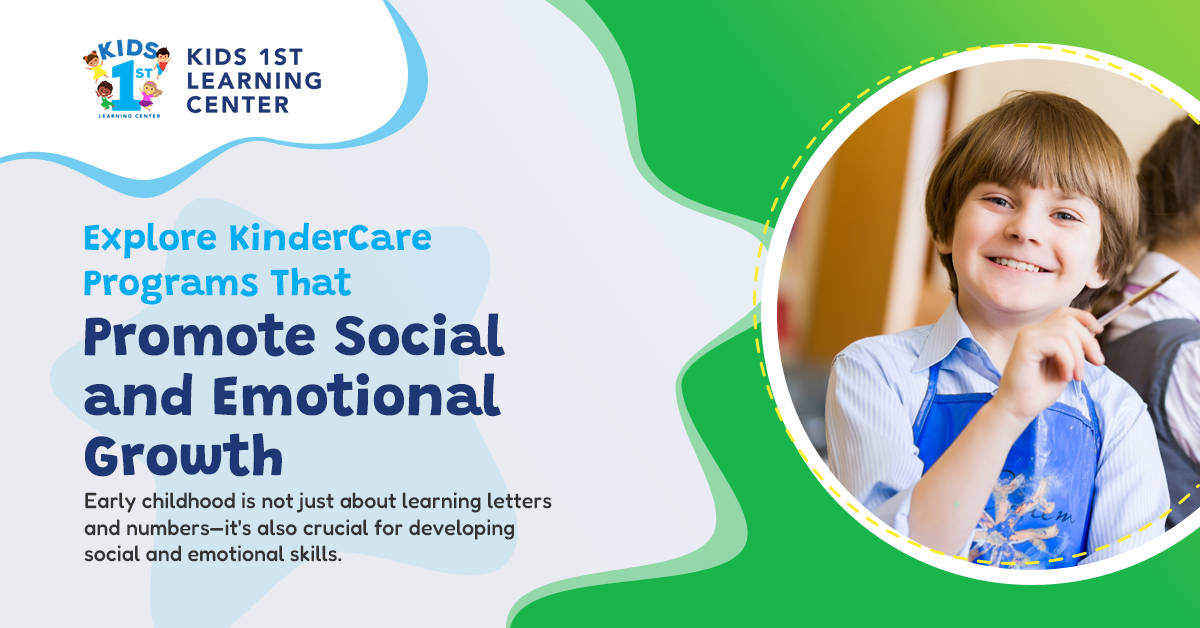
Early childhood is not just about learning letters and numbers—it’salso crucial for developing social and emotional skills. The right daycare should help children build confidence, navigate friendships, and healthily express their emotions. KinderCare programsfoster a nurturing environment where children feel secure, valued, and encouraged to explore the world around them.
Small Class Sizes for Personalized Attention
Children thrive best in an environment where they receive individualized care and attention. Small class sizes ensure caregivers can engage with each child, offering support and encouragement while fostering meaningful connections.
Why small class sizes matter:
- More one-on-one interaction: Teachers can better understand each child’s personality, needs, and strengths.
- Less overwhelming environment: Fewer children in a room make it easier for little ones to adjust and feel secure.
- Stronger peer relationships: Smaller groups allow children to form close friendships and practice social skills.
Daycares with low teacher-to-child ratios create a more personalized experience, helping children feel seen and heard.
Social Development Activities That Build Friendships
Friendships play a big role in a child’s emotional well-being. The right daycare should incorporate structured social activities that teach children to interact, share, and collaborate.
Key social development activities:
- Group play and teamwork games: Helps children learn cooperation and problem-solving.
- Dramatic play & role-playing activities: Encourages empathy and understanding of different perspectives.
- Show-and-tell sessions: Boosts communication skills and confidence in expressing thoughts.
These activities encourage children to build positive relationships, navigate social situations, and develop key interpersonal skills.
Emotional Support & Positive Reinforcement
A child’s emotional state is just as important as their academic progress. KinderCare programs focus on providing emotional support and helping children understand and manage their feelings healthily.
How daycare centers support emotional growth:
- Encouraging self-expression: Children are taught to identify and communicate emotions through words, art, and play.
- Teaching coping strategies: Mindfulness exercises, breathing techniques, and problem-solving activities help children manage frustration and stress.
- Providing positive reinforcement: Recognizing achievements, no matter how small, builds self-esteem and encourages good behavior.
Children who feel emotionally secure are more confident, resilient, and prepared for future challenges.
Conflict Resolution & Peer Interaction Skills
Disagreements are a natural part of growing up, and a quality daycare should teach children healthy ways to handle conflict. Learning to express feelings, listen to others, and resolve issues calmly are essential life skills.
Ways daycares help with conflict resolution:
- Modeling respectful communication: Teachers guide children in expressing concerns politely.
- Encouraging problem-solving: Children are given opportunities to work through disagreements with support.
- Using age-appropriate social stories: Stories about sharing, kindness, and cooperation teach important lessons.
By learning these skills early, children become more confident in navigating social situations and relationships.
A Nurturing Environment That Feels Like Home
For many children, daycare is their first experience away from home. A warm, caring atmosphere helps ease separation anxiety and fosters a sense of security and belonging.
What makes a daycare feel like home?
- Compassionate and attentive caregivers: Teachers should offer hugs, encouragement, and reassurance when needed.
- Comfortable and inviting spaces: Cozy reading corners, play areas, and personal cubbies make children feel welcome.
- Consistent daily routines: Predictable schedules help children feel safe and build confidence in their environment.
A nurturing environment ensures that children associate learning and socialization with positive experiences, setting the foundation for a lifetime of emotional well-being.
Consider a Milestone Early Learning Center for Skill-Based Development
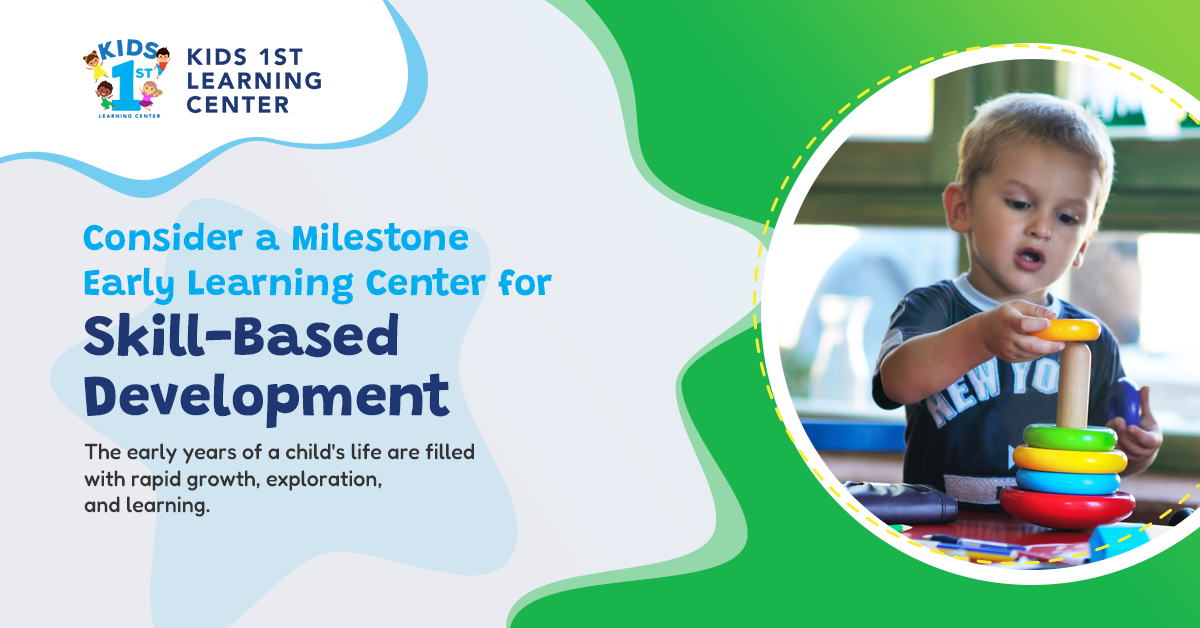
The early years of a child’s life are filled with rapid growth, exploration, and learning. A Milestone Early Learning Centernurtures these crucial stages by providing structured activities encouraging cognitive, physical, and creative development. Finding one that supports skill-based learning is important when choosing a daycare, helping children build the foundation for lifelong success.
Cognitive Growth Through Engaging Learning Activities
Young children are naturally curious, and a high-quality daycare should provide stimulating experiences that help them develop problem-solving and critical-thinking skills. The best learning environments encourage exploration, creativity, and hands-on learning.
How cognitive skills are developed:
- Age-appropriate puzzles & logic games: Enhances memory, reasoning, and focus.
- Storytelling and early literacy programs: Encourages language development and comprehension.
- STEM-based activities: Simple experiments, building blocks, and number recognition lay the foundation for future learning.
A daycare that includes structured cognitive activities ensures that children constantly learn in fun and engaging ways.
Physical Development with Play & Movement-Based Activities
A child’s motor skills develop through movement, so an early learning center should provide plenty of opportunities to develop various motor skills. Activities should focus on building strength, coordination, and balance while encouraging active play.
Physical activities that support motor skill development:
- Outdoor play and obstacle courses: Enhances coordination and builds physical strength.
- Finger painting and arts & crafts: Develops fine motor control and hand-eye coordination.
- Yoga and stretching exercises: Improves flexibility, balance, and focus.
A center that prioritizes physical activity helps children develop strong, healthy bodies while also reinforcing essential social skills like teamwork and cooperation.
Creative Expression Through Arts, Music, & Imaginative Play
Creativity is key to early childhood learning, helping children express their emotions, build confidence, and develop problem-solving abilities. A great daycare should provide diverse opportunities for creative exploration.
Ways daycares nurture creativity:
- Music & movement classes: Singing, dancing, and instrument play encourage rhythm and coordination.
- Story-based dramatic play: Dressing up and role-playing support communication skills and emotional intelligence.
- Arts & crafts activities: Painting, sculpting, and drawing foster self-expression and imagination.
When children are encouraged to explore their creativity, they develop stronger cognitive connections and emotional awareness.
Independence & Self-Help Skills for Confidence Building
Beyond academic and physical growth, a Milestone Early Learning Center should encourage independence by teaching children valuable self-help skills beyond academic and physical growth. These skills foster responsibility and boost confidence in a child’s ability to complete everyday tasks.
Essential self-help skills taught at daycare:
- Dressing and personal hygiene: Encourages self-care habits like washing hands and putting on shoes.
- Basic meal preparation and cleanup: Helps children develop independence in eating habits.
- Problem-solving in daily routines: Encourages children to think critically and make small decisions.
When children learn to care for themselves in a structured, supportive setting, they become more confident and capable as they grow.
Emotional and Social Development Through Peer Interaction
A well-rounded early learning program should also focus on emotional intelligence, teaching children how to navigate relationships, express their feelings, and interact respectfully with others.
How daycare supports social-emotional growth:
- Group play & teamwork activities: Encourages cooperation and sharing.
- Emotional regulation techniques: Helps children understand their feelings and manage them effectively.
- Conflict resolution strategies: Teaches children how to communicate and solve problems calmly.
Strong social skills prepare children for school and life by fostering meaningful relationships and a sense of belonging.
Conclusion
Choosing the perfect early learning daycare center is one of the most important decisions for your child. A nurturing, skill-based environment sets the stage for their future success, helping them grow academically, socially, and emotionally. Whether looking for a childcare learning center with a strong curriculum, KinderCare programs that encourage emotional intelligence, or a Milestone Early Learning Center that fosters independence, the right daycare makes all the difference!
At Kids 1st, every child deserves a warm, supportive space to learn, play, and thrive. Let’s find the perfect fit for your little one! Call us today at (818) 873-0133 or visit our contact pageto learn more!

